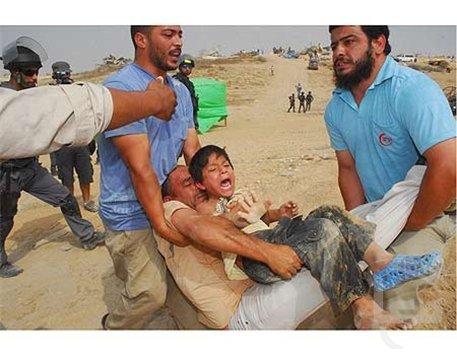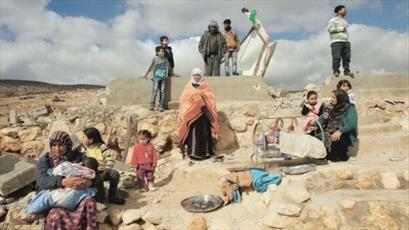Hawzah News Agency-Hunched over a white cooler box, Aziz al-Turi sifted through his most important possessions and pulled out an antique brass coffee pot.
“You know how old this is? Fifty years old,” he declared. “It came from Syria, via Jordan, here to Araqib.
Along with pillows and carpets from Araqib’s hospitality tent, the centre of social life in the village, these were the items that Turi rushed to save on the morning of June 29, when Israeli police arrived to demolish the village. By the villagers’ count, it was the hundredth time that Araqib had been destroyed since July 2010 – and the second demolition during the Islamic holy month of Ramadan.
Having loaded up the improvised trunk, Turi dragged it 50 metres to the village cemetery, where he dropped it close to two graves. Knowing the possessions were safe from bulldozers there, he stood and watched another demolition unfold.
“We finished eating the suhoor meal around 4am and then went to sleep,” he said. “About an hour later, I woke up, as there was a police van speeding around the outside of the village.”
Hours later, police vehicles returned to the village – along with a demolition team – as a helicopter circled overhead, residents told.
“We started to take our clothes out of our houses. I put some things in the cemetery; others I put in this valley; some I put in the trees. I can’t put them in one place because one time I put them all in one place and they came with a bulldozer and destroyed everything,” Turi said. “I didn’t have time to take everything, but it was important for me to take the old coffee pot – it’s my life. I took the cushions. Then they destroyed everything – my father’s house, my friend Salim’s house, all the houses.”
Araqib is one of about 40 “unrecognised” Bedouin villages in the Negev, or Naqab, a desert region in southern occupied Palestine. While the residents of these villages are full citizens of Israel, the state does not provide water, electricity, infrastructure or sewage systems. The vast majority of these villages also lack basic state services such as schools and health clinics, while their residents are not able to participate in local government or municipal elections.
The dispute between the villagers of Araqib and the state of Israel dates back three generations, and relates to the ownership of the land. Initially established during the Ottoman era, the village’s lands were expropriated by Israel under the Land Appropriation Law in 1953, and the villagers were forced to leave.
However, many residents of Araqib returned to the village in the 1990s, in an attempt to re-establish a pastoral way of life on the land. The village was home to about 300 residents living a traditional Bedouin lifestyle when it was first demolished on July 27, 2010.



Your Comment